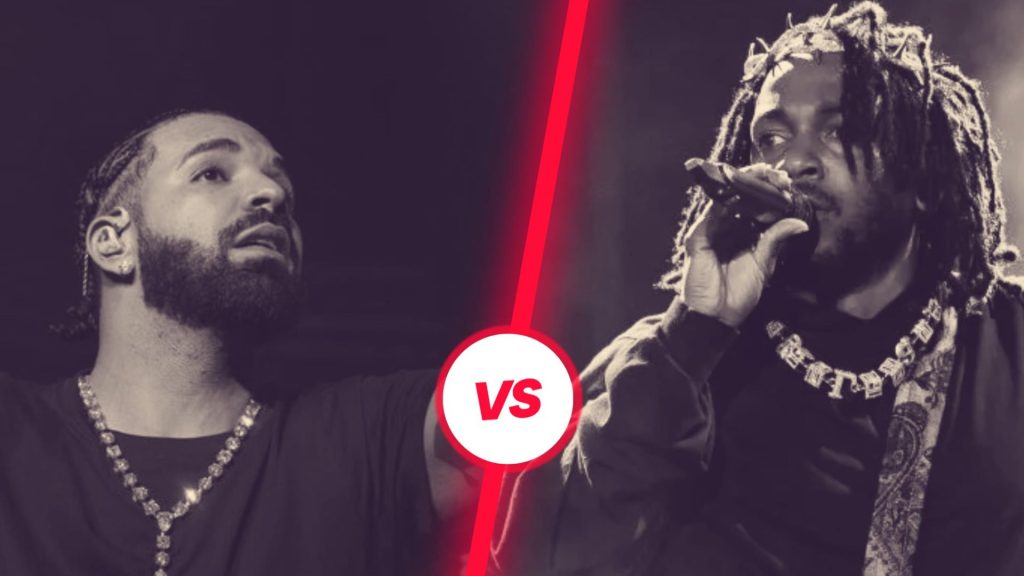Drake vs. Kendrick: Can a Diss Track Lead to a Lawsuit?

Introduction: Can You Sue Over a Diss Track?
Drake and Kendrick Lamar are two of the biggest names in rap, but their recent feud isn’t just about music—it’s now in the courtroom. Drake is suing Universal Music Group (UMG), the company that distributes both his and Kendrick Lamar’s music, over Kendrick’s song “Not Like Us.”
Drake claims the song spread false and harmful accusations about him and that UMG made it even worse by promoting the track. But can you sue someone over song lyrics? And does Drake’s lawsuit have a real chance of winning? Let’s break it down.
Can You Defame Someone in a Song?
Most of the time, no. Songs, movies, and TV shows are considered entertainment—they’re protected under the First Amendment, which allows people to express opinions freely.
To win a defamation lawsuit, Drake would need to prove:
✅ The song made a false statement about him.
✅ People believed it as fact, not just as entertainment.
✅ It caused real damage to his reputation or career.
Since rap battles are usually full of insults and exaggerations, it’s hard to argue that people saw “Not Like Us” as a serious news report instead of a diss track.
Drake’s Other Claims: Was the Song Unfairly Boosted?
Besides defamation, Drake is also accusing UMG of “payola”—which means secretly paying to boost a song’s popularity. He says UMG:
- Used bots (fake internet accounts) to increase the song’s streams.
- Lowered licensing fees to make it appear higher in search results.
- He promoted the song in ways that hurt his reputation while benefiting Kendrick.
These claims are more provable than defamation because investigators can check if streams were fake. If true, UMG could face penalties for unfair business practices.
Did You Know? 🎤🔥
- “Not Like Us” became one of the most streamed rap songs ever and even won multiple Grammy Awards.
- Some rap feuds have gone to court before, but it’s rare for an artist to sue over diss tracks.
- If an artist’s music label did boost another artist’s song to hurt them, that could violate fair competition laws.
Case Law: How the Courts Have Handled Similar Cases
There have been court cases about song lyrics before, and they usually protect artistic expression.
🎵 Mattel, Inc. v. MCA Records (2002): Barbie’s creators sued over the song “Barbie Girl”, claiming it damaged their brand. The court ruled it was parody (a joke) and allowed it.
🎵 Hustler Magazine v. Falwell (1988): A magazine published a fake, offensive story about a preacher. The court ruled that public figures can’t sue for jokes, even if they seem mean.
🎵 Hip-Hop Defamation Cases: In most cases, courts protect diss tracks as free speech unless they make a clear false claim of fact.
Based on these rulings, Drake’s lawsuit will probably be hard to win unless he can prove people really believed Kendrick’s lyrics were fact, not just an exaggeration.
If This, Then That: What Happens Next?
➡️ If the court agrees with Drake, UMG could be fined or forced to change how it promotes music.
➡️ If the court throws out the case, it sets a clear message that rap beefs should stay in the studio, not the courtroom.
➡️ If the payola claim is true, it could affect how music is promoted and paid for on streaming platforms.
FAQs: Your Questions, Answered!
❓ Why isn’t Drake suing Kendrick Lamar?
➡️ Because it’s harder to sue an artist for their song lyrics than it is to sue a company for unfair business practices.
❓ What is payola?
➡️ It’s when companies secretly pay to make a song seem more popular than it actually is.
❓ Could Kendrick Lamar perform “Not Like Us” at the Super Bowl?
➡️ Yes! Performing it live doesn’t affect the lawsuit because it’s not a new recording.
❓ Has a diss track ever led to a successful lawsuit?
➡️ Not really! Most courts say diss tracks aren’t real accusations, just part of rap battles.
Conclusion: Will Drake’s Lawsuit Succeed?
Drake’s lawsuit is making headlines, but legally, it’s a tough case. The defamation part will likely be dismissed because rap lyrics are protected speech. However, his claims about fake streaming numbers and unfair promotion might go further.
For now, the drama continues—but in hip-hop, the real battles are usually fought on the mic, not in the courtroom. 🎤🔥
Next Up California Eviction Law













